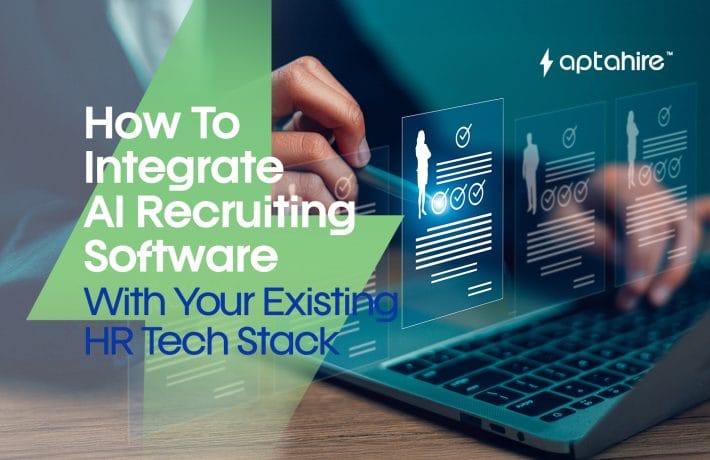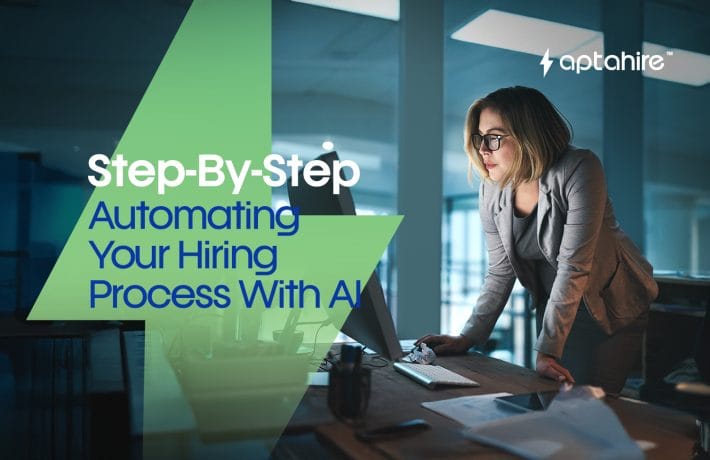10 Best Hiring Software for Warehousing Industry

Introduction
If you’ve spent any time managing hiring in the warehousing world, you know it’s a different game altogether. With constant turnover, seasonal surges, and the juggling act between full-time staff and contract workers, things can get overwhelming fast. Unlike traditional office environments, warehouse operations need a recruitment process that’s fast, flexible, and built for scale.
That’s where hiring software comes in. Gone are the days of spreadsheets and manual tracking. Modern warehousing demands smart tools that automate the heavy lifting, screening applicants, tracking interviews, sending updates, and ensuring you’re always compliant with labor laws.
The right software can reduce time-to-hire, improve candidate quality, and help you stay ahead of staffing demands. Whether you’re running a regional distribution center or managing multiple fulfillment hubs, there’s a platform built to make your hiring smoother and more strategic.
In this guide, we’ll walk you through the ten best hiring software solutions built specifically for the warehousing and logistics sector. Each one brings something unique to the table, and by the end, you’ll know which one fits your needs best.
1. Aptahire
Aptahire is an AI-powered hiring platform built with efficiency and accuracy in mind, making it an excellent fit for warehousing companies. Its strength lies in advanced candidate screening, real-time behavioral and eye-movement analysis during video interviews, and a focus on authenticity in the hiring process. It helps employers quickly shortlist high-quality candidates, saving valuable time in high-volume environments.
What stands out: Aptahire brings intelligent automation to the forefront of warehouse hiring, reducing bias and increasing screening speed without compromising on quality.
2. Workday Recruiting
Workday Recruiting is an enterprise-level solution that works well for large warehousing companies with multiple sites. Its unified system connects hiring with payroll, onboarding, and workforce planning. Recruiters can create job requisitions, track applicants, and manage interviews through a centralized dashboard. It also includes robust reporting tools and candidate relationship management features.
What stands out: Seamless integration with other Workday tools makes it easy to scale operations and manage workforce analytics.
3. iCIMS Talent Cloud
iCIMS offers a full-suite talent acquisition platform that fits well for both midsize and large warehouse operations. It supports high-volume hiring through automation, AI-powered screening, and text recruiting. You can build a talent pipeline for recurring roles like pickers, packers, forklift operators, and shift supervisors.
What stands out: AI-powered matching and strong mobile experiences help recruiters and candidates connect faster.
4. BambooHR with Hiring Add-ons
While BambooHR is better known for HR management, its hiring add-ons are quite powerful for smaller warehouses or those starting to scale. It’s user-friendly, affordable, and provides great applicant tracking capabilities. It also helps manage new hire data, documents, and onboarding.
What stands out: Clean UI, easy integration with background checks and e-signatures.
5. Lever
Lever is built for collaborative hiring. For warehouse teams where multiple stakeholders are involved in the recruitment process, Lever offers transparency and real-time updates. It supports high-volume roles and gives analytics that help optimize each step of hiring.
What stands out: Strong candidate tracking and nurturing features; excellent data visualization.
6. Jobvite
Jobvite is popular for its ability to scale hiring while delivering a great candidate experience. Its intelligent automation helps recruiters reduce manual screening work and move candidates through the pipeline faster. Warehousing teams benefit from its scheduling, texting, and employee referral system.
What stands out: Workflow customization and predictive analytics.
7. Bullhorn
Bullhorn is an industry favorite in the staffing and recruiting world and works well for warehouse staffing agencies or companies that rely on contractors. It’s built to support temp hiring, shift-based work, and ongoing placement management.
What stands out: Strong CRM features combined with ATS functionality for ongoing staffing needs.
8. Breezy HR
Breezy HR is a lightweight but powerful solution for smaller warehouses or regional operations. It offers drag-and-drop pipelines, automated interview scheduling, and email templates. The mobile-friendly interface is great for on-the-go hiring managers.
What stands out: Fast implementation, customizable workflows, and low learning curve.
9. SmartRecruiters
SmartRecruiters is designed to be scalable and modern. Warehousing teams can leverage its collaborative tools, hiring marketplace, and multilingual features to recruit across regions. It supports employer branding efforts and offers customizable career sites.
What stands out: End-to-end hiring journey from sourcing to onboarding.
10. Zoho Recruit
Zoho Recruit offers solutions for both in-house recruiters and staffing agencies. It works well for warehousing because it allows for custom automation, resume parsing, and quick job board distribution. It’s ideal for teams looking for cost-effective, scalable software.
What stands out: Custom workflows and strong integrations with other Zoho tools.
Tips for Choosing the Right Software
- Define your hiring volume and candidate types before choosing a platform.
- Consider tools that offer mobile access for on-the-floor hiring managers.
- Make sure the platform integrates with your payroll or HR system.
- Look for compliance tracking and analytics that can help avoid hiring risks.
- Check for candidate experience features, especially for roles that require quick onboarding.
Key Stats That Matter
- According to the U.S. Bureau of Labor Statistics, warehouse-related employment is projected to grow by 6% annually.
- The average warehouse sees turnover rates between 30–50%.
- Companies using automated hiring platforms report 22% faster time-to-fill.
- Mobile-optimized career pages see 11% higher conversion rates for applicants.
Final Thoughts
Hiring in the warehousing industry doesn’t have to feel like a fire drill every week. With the right tools, you can turn chaos into clarity. Each of the software platforms listed here offers a different angle, whether it’s speed, scale, or simplicity. What they all have in common is their ability to help warehousing businesses hire better, faster, and more efficiently.
Investing in the right hiring software isn’t just about making life easier for your HR team. It’s about meeting demand, maintaining productivity, and keeping your business running smoothly, even during peak seasons. The sooner you streamline your hiring process, the more prepared you’ll be for whatever comes next.
FAQs
1. Why is HR software important for the manufacturing industry?
HR software is crucial in the manufacturing industry due to its ability to streamline operations, improve compliance, manage high-volume recruitment, track shift schedules, and enhance overall workforce productivity. Given the complexities of managing a large, often distributed workforce, HR software helps manufacturers reduce errors, save time, and make data-driven decisions. It also assists in ensuring labor law compliance, reducing turnover, and improving safety protocols, all key to maintaining an efficient manufacturing operation.
2. How does Aptahire help in manufacturing recruitment?
Aptahire leverages AI to automate and optimize recruitment processes, making it particularly valuable for manufacturing companies with high-volume, skill-specific hiring needs. The platform’s AI algorithms can quickly screen resumes, assess candidates’ skills and authenticity through video interview intelligence, and identify potential issues like multitasking or disengagement. This results in faster, more accurate hiring, ensuring that your workforce is always fully staffed with skilled labor.
3. What features should manufacturing HR software have for compliance?
Manufacturing HR software should include features like automated labor law compliance updates, document storage for audits (e.g., training certifications, safety checks), overtime calculations per industry standards, and compliance alerts to ensure deadlines are met. Many platforms also offer specialized modules for tracking union agreements, safety regulations, and regional labor requirements, which are critical for manufacturers that operate in highly regulated environments.
4. Can HR software integrate with other manufacturing systems, such as ERP or IoT?
Yes, many modern HR software platforms, like Workday and Oracle HCM, offer seamless integration with Enterprise Resource Planning (ERP) systems and Internet of Things (IoT) technologies. These integrations allow HR systems to work in harmony with production schedules, supply chain operations, and machine performance, providing real-time insights into workforce productivity, labor costs, and machine utilization. This cross-platform functionality enhances decision-making and operational efficiency across the organization.
5. What are the key benefits of using mobile HR solutions in manufacturing?
Mobile HR solutions, such as Zoho People Plus or Darwinbox, offer significant benefits for manufacturing companies with a remote or field-based workforce. These solutions enable employees to clock in and out, submit requests for time off, complete safety training modules, and access HR documents directly from their mobile devices. This real-time access ensures smoother communication and reduces the need for manual tracking, improving workforce efficiency and reducing errors in remote or on-site manufacturing locations.



